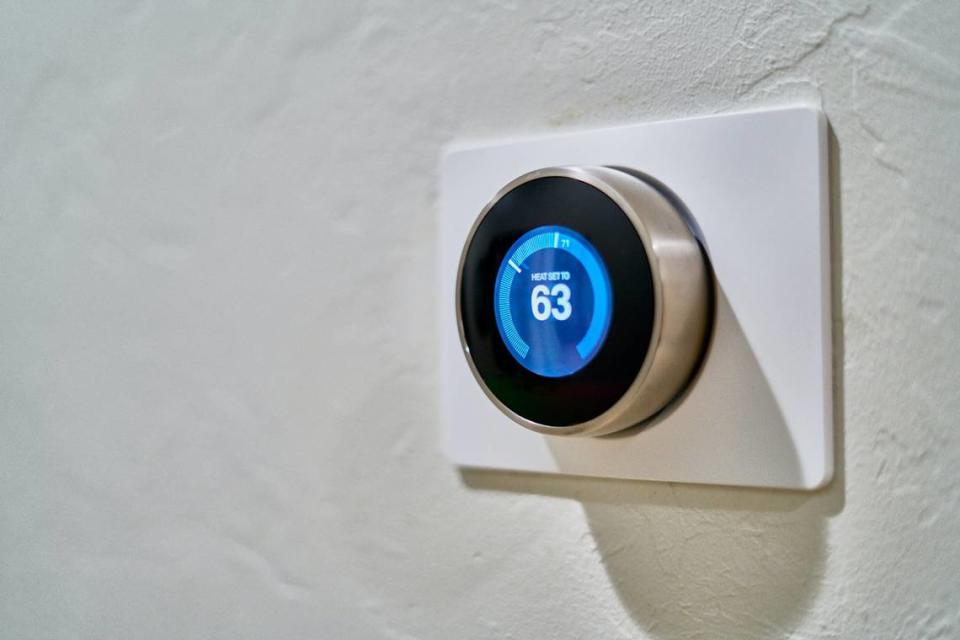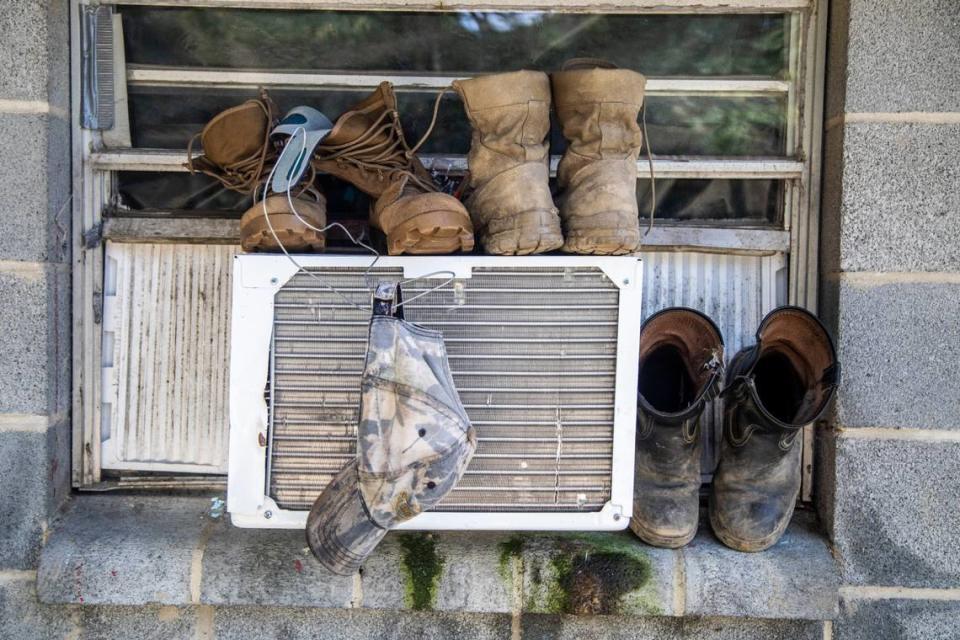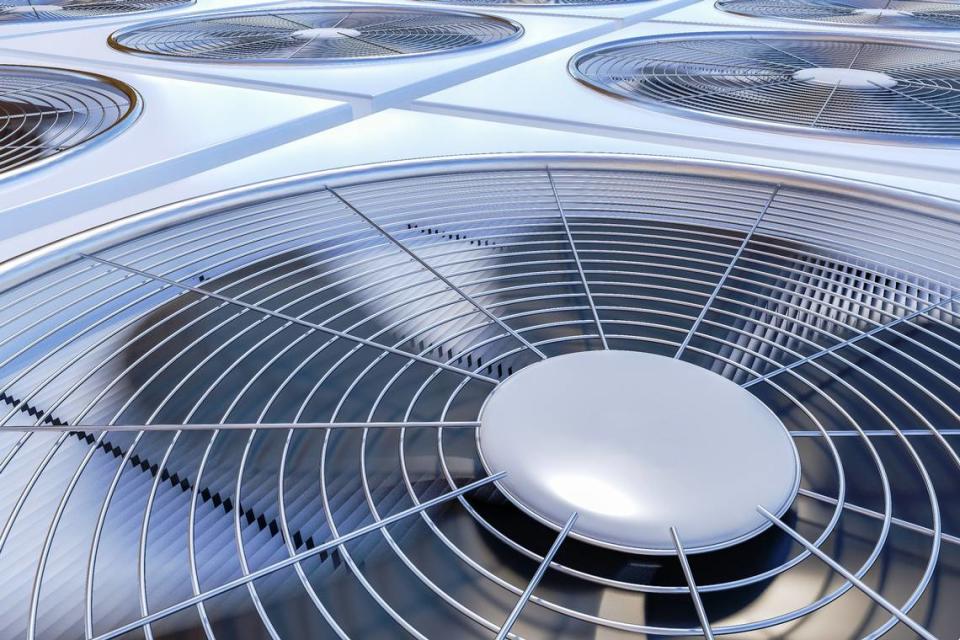Here are 5 things you should (and should not) do to make your AC unit work better
When North Carolina temps are breaking 90°F everyday, we look for expert advice to keep our air conditioning units running in tip-top shape.
Last summer, The News & Observer spoke with Ritchie Smith, owner of Air Secure Company in Cary, and asked him to tell us if AC “tips” we’ve seen circulating online are fact or fiction, and to give us his top five pieces of advice.
Will changing my air filters make my AC unit work better?
Smith:
“Changing your air filters will make it stronger.
“I always tell my customers to write the date on the filter when they change it because you can forget real easy how long it’s been in. I also say to check your filter every time you get your light bill, or your electric bill. Make a mental note: I got my light bill, which is directly impacted by the performance of the AC.
“You might not have to change the filters every 30 days. And the filters on the ceiling don’t have to be changed as often as the ones on the floor.”
Will slightly blocking AC vents save me money?
Smith:
“You’re not saving any money by closing off your vents. It makes the whole system work harder.
“And if you block your vents, you wind up with one room hot and one room cool.”

Can condensation tablets help your AC unit work more efficiently?
Smith:
“Using a condensation tablet coats the pipe and prevents the sludge and algae from building up. Not to say it won’t happen, but it’ll (help) prevent it from happening. Sludge and algae line the pipe over time, it’s just what happens.
“Follow the instructions on the bottle — how many tablets, how often to use.”
Should you spray your outdoor HVAC unit with a water hose to keep the vents clean?
Smith:
“First, you should turn the power off on the unit when you’re doing this. The biggest thing I’d say, more than spraying with water, is that when landscapers or whoever is mowing the lawn or weeding the yard, turn the unit off. That’ll make it not suck the clippings in it and clog the outside portion.
“I tell customers to use extreme caution. I’d rather us clean the coils. Using water won’t damage it, but if they don’t know the proper place to spray, they could spray into the electrical panel while it’s running. So if you’re going to do this, at least cut the power beforehand.”

Should you put an umbrella over your outdoor HVAC unit to keep it shaded?
Smith:
“I’d say no to having shade over the unit. You need it a certain height above where the fan is blowing out.
“When the heat gets blown out, it dissipates into the atmosphere. You don’t want the heat to go up, hit the umbrella and blow back. That could be dangerous. I’d never put anything on top of it, which will trap the hot air and run the pressure up, causing compression failure.
“It’s like going down the interstate and putting cardboard over part of your car. It has to pull the air across and pull out, and you don’t want to recirculate the hot air.
“I’d caution against the umbrella.”

5 expert tips for making your air conditioning unit run better
Here’s what Smith recommends:
1. Annual maintenance: “Have a professional come check the controls to make sure the electricity is operating at peak efficiency,” Smith said. “If you get your car maintained, get your (AC) unit maintained. It’s a mechanical piece of equipment.”
2. Turn it off during lawn care: To ensure grass clippings and debris don’t get sucked into the unit.
3. Check Freon levels: “This can keep it from having a major failure from letting it go too long without inspection. It’s like changing the oil in your car,” Smith said. “If the refrigerant is too high or too low, it won’t run efficiently. Have a trained professional come out and check them.”
4. Keep vents open: And let air flow freely. Restricting air won’t regulate the temperature of your space.
5. Don’t cover the condensation line: “On the outside of the house where the condensation line is, make sure you don’t put anything on top of it,” Smith said. “I caution way against that.”
Fore more about Cary’s Air Secure Company, visit airsecureinc.net.
Free ways to keep your AC unit healthy
Central Heating & Air Conditioning, a Midwest-based HVAC company, shared these tips in an online blogpost to keep your AC systems healthy throughout the warm months:
1. Clean around outdoor condenser unit. In-depth, thorough cleanings should be completed by professionals, Central advises.
2. Vacuum indoor vents. You should also keep items like furniture and blinds from blocking your vents.
3. Increase your thermostat by a few degrees. A simple 5 or 8-degree adjustment can save you money and energy, Central says.
4. Keep lamps and other heat-producing products away from the thermostat. This can tell the AC system unit that the air in your home needs to be cooled more.
5. Close your blinds and curtains throughout the day.
6. Clear your drain line. This is by the indoor coil, typically mounted above the basement furnace, Central wrote.
“If you flush one cup of chlorine bleach down your air conditioning drain and rinse it with a gallon of water, you can keep your drain clear through the summer.”
7. Don’t use your dryer or oven during the hottest hours of the day.
8. Insulate exposed duct work. This will make sure it doesn’t leak any air conditioned air.
Source: centralhtg.com/blog/8-no-cost-ways-to-improve-air-conditioning-efficiency
In NC, this thermostat setting will save you the most money while still keeping you cool
6 of the ‘most picturesque small towns’ in the US are here in NC, new survey says
It’s ‘baby copperhead season’ in NC. Here’s what to know about the juvenile snakes

